School of Science was founded in 2008 and developed from the Foundation Department set up in 1958. At present, there are two undergraduate majors, which are Information and Computing Science (Big Data Application Direction) and Electronic Information Science and Technology. There are the First-level Discipline of Mathematics for Master’s Degree Program and the Applied Statistics for Master’s Professional Degree Program, covering five secondary discipline of basic mathematics, applied mathematics, computational mathematics, probability theory and mathematical statistics, operational research and cybernetics.
At the moment, the school has 86 teaching staff, of which 50% are teachers with senior titles and 58% are teachers with doctoral degrees. It is home to 1 Beijing Key Laboratory, 2 Beijing Excellent Teaching Teams, 1 Beijing Academic Innovation Team and 1 Scientific Research Innovation Team supported by the central government, 5 Beijing Education and Teaching Achievement Awards, 2 Beijing Excellent Courses, 1 Beijing Excellent Teaching Materials, 1 National Science and Technology Progress Award, 4 provincial and ministerial science and technology awards, and presided over 30 national scientific research projects. The school has successfully held "Sixth International Conference on Biomathematics" and "Symposium on Data Modeling and Mining in Smart City Management", etc. Teachers have long term cooperation and exchange with scholars from the United States, Britain, Japan and other countries.
School of Science undertakes the teaching tasks of mathematics, mechanics, physics, drawing and other public basic courses in the whole school, and makes unremitting teaching reform to continuously improve the teaching quality. At the same time, teachers organize the students to participate in COMAP's Mathematical Contest in Modeling, China Undergraduate Mathematical Contest in Modeling, China Undergraduate Advanced Mapping Technology and Product Information Modeling Innovation Competition, and University Physics Competition in Beijing, etc. Students have won more than 100 awards every year, which cultivate their innovative and practical ability.
Faculty
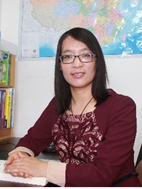
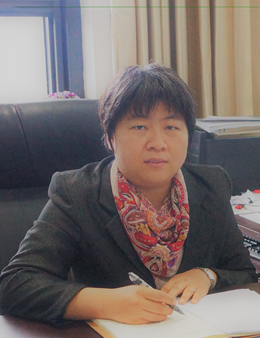

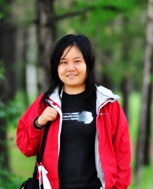




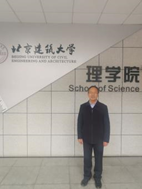


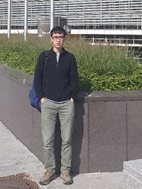
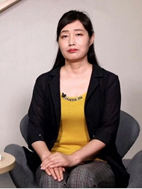






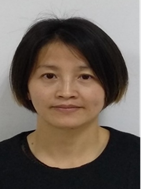




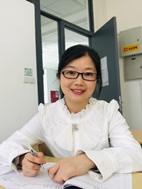


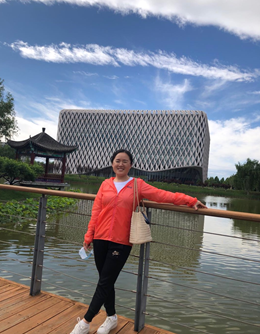


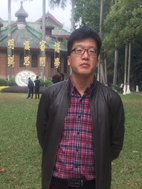


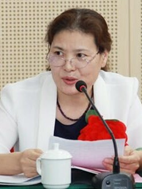


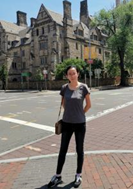


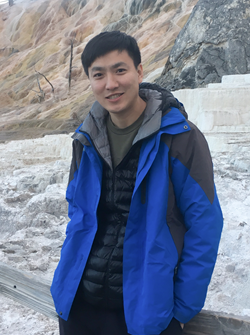



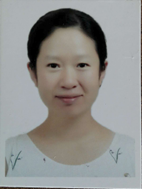
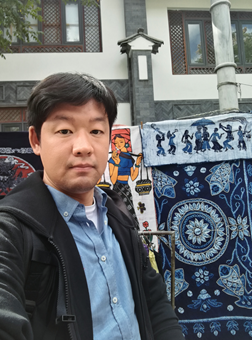


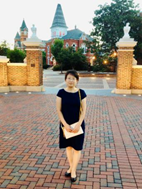


Courses
Information and Computational Sciences
Course Type |
Course Attribute |
Course Title |
Semester |
Total Class Hours |
Compulsory |
C Programming Language |
1 |
48 |
|
Mathematical Analysis(1) |
1 |
96 |
||
Advanced Algebra and Analytic Geometry(1) |
1 |
72 |
||
Mathematical Analysis(2) |
2 |
96 |
||
Mathematical Analysis(3) |
3 |
48 |
||
Advanced Algebra and Analytic Geometry(2) |
2 |
72 |
||
Ordinary Differential Equations |
3 |
32 |
||
Complex Functions and Integral Transformations |
3 |
48 |
||
Theory of Probability and Statistics (A) |
4 |
64 |
||
Compulsory |
Discrete Mathematics |
2 |
48 |
|
Data Structures and Algorithms |
3 |
56 |
||
Mathematical Modeling and Experiment |
4 |
40 |
||
Numerical Analysis |
5 |
48 |
||
Information and Coding |
5 |
32 |
||
Operations Research |
6 |
32 |
||
Multivariate statistics and Data Analysis |
6 |
32 |
||
Compulsory |
Introduction to Major |
3 |
16 |
|
Object-Oriented Programming |
1 |
56 |
||
Operation System |
4 |
40 |
||
Python Programming and Application |
5 |
32 |
||
Database Principles and Application |
5 |
56 |
||
Modern Cryptography |
5 |
40 |
||
Computer Graphics and visualization |
6 |
40 |
||
Data Ming and Machine Learning |
7 |
40 |
||
Optional |
Reading & Drawing of Engineering Drawing |
2 |
32 |
|
Computer Algorithm |
3 |
32 |
||
Principles of Computer Composition |
4 |
36 |
||
Introduction to Technologies in Smart City |
5 |
24 |
||
Pattern Recognition |
5 |
32 |
||
Digital Image Processing |
6 |
40 |
||
Computer Networks and Security |
6 |
40 |
||
Specialty English |
6 |
24 |
||
Document Retrieval of Science and Technology |
6 |
16 |
||
Software Engineering |
6 |
32 |
Operations Research and Cybernetics
Course Type |
Course Attribute |
Course Title |
Semester |
Total Class Hours |
Compulsory |
Functional analysis |
1 |
64 |
|
Numerical methods |
1 |
48 |
||
Introduction of algebras |
1 |
48 |
||
Optional |
Fundamentals of Biomathematics |
2 |
48 |
|
Qualitative theory of ordinary differential equations |
1 |
48 |
||
The theory of stability |
2 |
48 |
||
Viscoelastic hydrodynamics |
1 |
48 |
||
Heat and mass transfer |
2 |
48 |
||
Optimization method |
2 |
48 |
||
Computing technology and algorithmic language |
2 |
48 |
||
Machine learning |
1 |
48 |
||
Deep learning and its applications |
1 |
48 |
||
Sparse Representation and Image Processing |
2 |
48 |
||
Linear system theory |
1 |
48 |
||
Advanced mathematical statistics |
1 |
48 |
||
Introduction to linear models |
2 |
48 |
||
Deep learning and its applications |
1 |
48 |
||
Advanced econometrics |
2 |
48 |
||
Statistics with Stata |
1 |
48 |
||
Algebraic groups and their representations |
1 |
48 |
||
Lie algebras and their representation theory |
2 |
48 |
Applied Statistics
Course Type |
Course Attribute |
Course Title |
Semester |
Total Class Hours |
Compulsory |
Advanced mathematical statistics |
1 |
48 |
|
Regression analysis |
1 |
48 |
||
Statistical software and data analysis |
1 |
48 |
||
Optional |
Fundamentals of Biomathematics |
2 |
48 |
|
Qualitative theory of ordinary differential equations |
1 |
48 |
||
The theory of stability |
2 |
48 |
||
Optimization method |
2 |
48 |
||
Machine learning |
1 |
48 |
||
Deep learning and its applications |
1 |
48 |
||
Sparse Representation and Image Processing |
2 |
48 |
||
Introduction to linear models |
2 |
48 |
||
Advanced econometrics |
2 |
48 |
||
Statistics with Stata |
2 |
48 |
||
Deep learning and its applications |
1 |
48 |